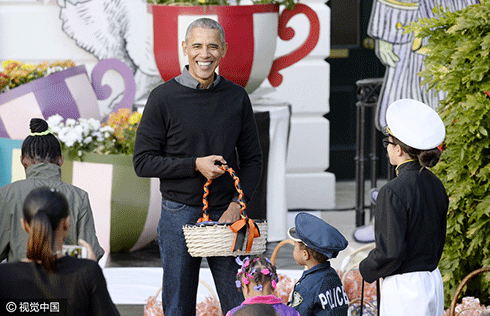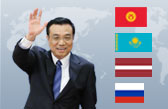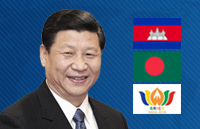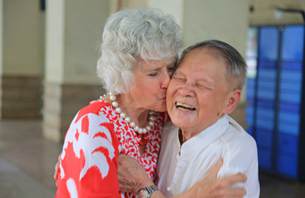Kerry urged to spell positive change on Diaoyu
DENVER - As new US Secretary of State John Kerry started his first week of foreign policy objectives, Chinese officials were optimistic a change in Washington will spell a positive change toward resolving the Diaoyu Islands issue.
"We hope that (Kerry) will be more moderate on the (Diaoyu) issue," said Major-General Zhu Chenghu, Dean of the Defense Affairs Institute for China's National Defense University of the People's Liberation Army.
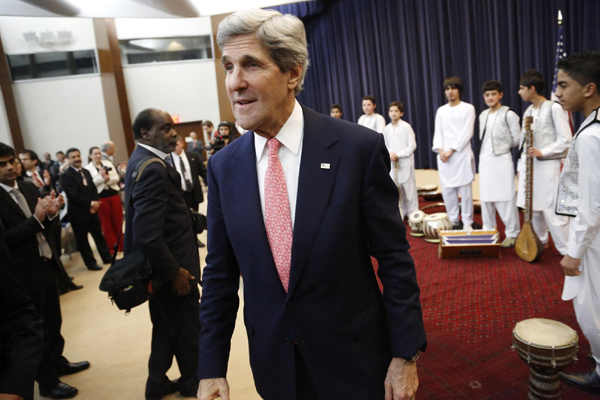 |
|
US Secretary of State John Kerry departs after greeting members of the Young Afghan Traditional Ensemble before a performance at the State Department in Washington, Feb 4, 2013. [Photo/Agencies] |
Kerry, a seasoned, political heavyweight, former Massachusetts senator and 2004 presidential candidate, represents an opportunity to redirect Washington's course, Gen. Zhu told Xinhua.
Gen. Zhu flew to Atlanta's Emory University on Tuesday, concluding a two-city US university tour over seven days, to address audiences of scholars, businessmen, students and media on the state of China' s foreign policy and the Diaoyu issue.
As Kerry was sworn in Friday, replacing Hillary Clinton as America's 68th Secretary of State, Gen. Zhu was concluding talks at the University of Denver' s Josef Korbel School of International Studies, where Dean Christopher R. Hill reiterated US desires to see the Diaoyu conflict resolved peacefully.
"Traditionally in these maritime disputes it's advisable to wait until people's tempers cool," ?said Hill, who served as US Ambassador to South Korea, Iraq, Poland and Macedonia.
"Nationalism in both China and Japan has developed to a peak," cautioned Gen. Zhu.
Outgoing Secretary Clinton, while garnering considerable praise from the US media for her four-year tenure, raised eyebrows across the Pacific two weeks ago by saying America opposed ?"any unilateral actions that would seek to undermine Japanese administration" ?of the Diaoyou Islands, a remark Japan jumped on as vindication of its claim to the islands.
Gen. Zhu said the US government is sending the wrong signals to Japan.
Japan "bought" the archipelago in September 2012 from a Japanese family to solidify its claim, a move that triggered a rebuke from China.
"They had no right to sell something that didn't belong to them," said retired 92-year-old John Yee, an American historian and member of the Flying Tigers in WWII. "It was purely political."
Yee, who immigrated to America after the war, agrees with China's historic claim to the islands.
Newly elected Japanese Prime Minister Shinzo Abe told Japanese Coast Guard members in Okinawa that Japan would defend the disputed islands at all costs, Japan's Kyodo news agency said Saturday.
"Both sides need to turn down the heat," said Hill, who was President Barack Obama' s Assistant Secretary of State for East Asian and Pacific Affairs in 2009-2010.
Gen. Zhu noted, ?"America has the responsibility not to escalate tensions there," ?and said he is concerned as Japan increases tension.
- John Kerry starts first day as US secretary of state
- John Kerry reaffirms commitment to Mideast peace
- John Kerry to visit Russia soon: Lavrov
- Iraq war worsening terrorism, John Kerry charges
- John Kerry's radio address: this election will be in your hands (October 30,2004)
- John Kerry storms to victory in virtual vote
- NY Times endorses John Kerry for president
- John Kerry: Bush policies encourage terrorism










